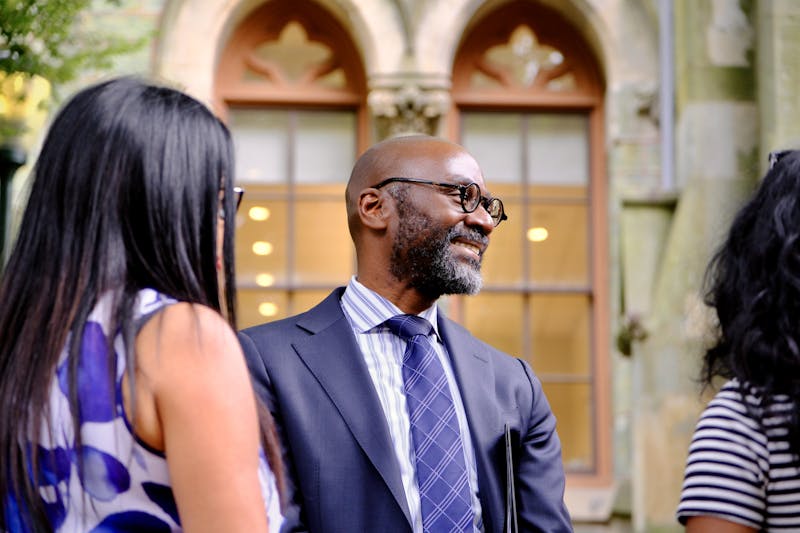The Philadelphia City Council, as well as student governments at schools such as Cornell University, the University of Texas at Austin and Swarthmore College, have all passed peace resolutions against a unilateral attack on Iraq. And last night, a motion was made for the Graduate and Professional Students Assembly at Penn to do the same. "The preservation of peace internationally and globally affects the entire Penn community," said the motion's author, Ph.D. candidate and graduate student in political science Michael Janson. The motion, entitled "Resolution Against Unlawful Aggression Demanding a New Resolution from the United Nations and Declaration of War by Congress Before Any Invasion," inspired heated discussion and critical engagement. Ultimately, the motion was placed aside for further debate, but GAPSA Chairman and Wharton graduate student Jeremy Korst said he was confident about its comeback. "I assume it will be taken off the table," Korst explained. He also anticipated a high turnout of graduate students ready to express their opinions at the next assembly meeting. Janson originally became interested in drafting the controversial resolution after visiting the Cities for Peace Web site and seeing the number of cities and college campuses that have passed similar resolutions. "I thought if the city of Philadelphia could express concern, so could graduate students of the University of Pennsylvania," Janson explained. Yet, while Janson considered the resolution to be a "pretty reasonable request," other members of GAPSA clearly did not agree. Calling himself "adamantly opposed" to the resolution, Wharton graduate student Boris Siperstein questioned the role of the representative assembly to decide on controversial political issues. "We are talking about people's political opinions," Siperstein said. "Things this serious we have no business deciding on. "You have the right in America to vote for yourself." Which brought others, including Annenberg School for Communication graduate student Frannie Wellings, to propose informing more of the graduate student population about the proposal. "I hope that we talk about polling and a possible vote that involves the student body," Wellings said. However, others saw the resolution as outside of the assembly's prerogative, regardless of possible support. "GAPSA, despite delusions of grandeur, is here to deal with campus issues," Wharton graduate student Rob Alvarez said. "This frankly isn't our purpose." Alvarez also warned against hasty decision-making. "If you do this, you have to do this seriously," he said at the meeting, to which he brought copies of the relevant United Nations resolutions in hopes of encouraging this level of seriousness. Now in limbo, GAPSA's stance on the possible war with Iraq remains a controversial issue. "It's problematic that GAPSA is overwhelmed by conservative graduate students," Wellings said, citing her opinion that Penn's graduate student body is generally more liberal than its representatives. Ultimately, the resolution remains open for consideration and further debate at future meetings. "Legitimate questions were raised," Korst explained of the meeting. "We pushed the envelope" in defining GAPSA's role on campus.
The Daily Pennsylvanian is an independent, student-run newspaper. Please consider making a donation to support the coverage that shapes the University. Your generosity ensures a future of strong journalism at Penn.
DonatePlease note All comments are eligible for publication in The Daily Pennsylvanian.







